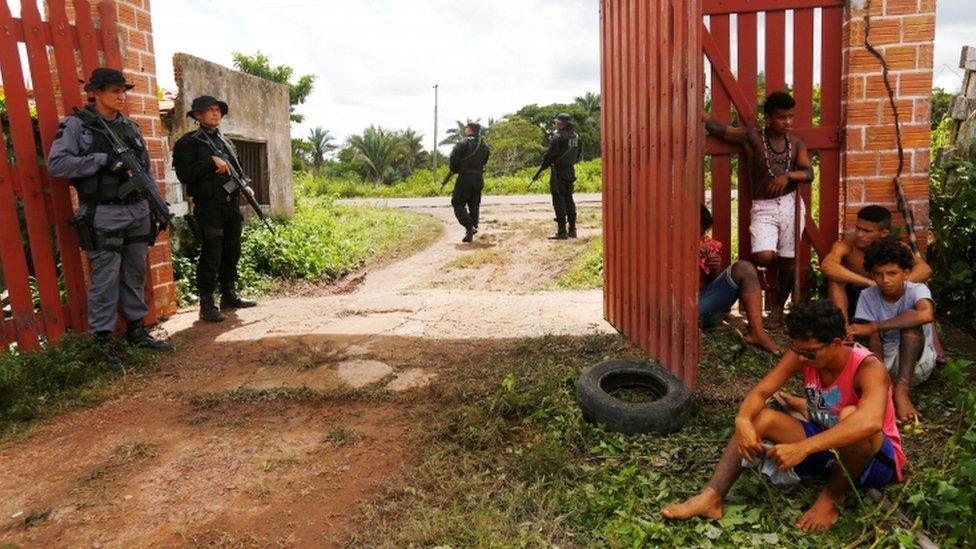Brazil indigenous agency head sacked 'for being honest'
- Published

Police were deployed at the Gamela reserve after the attack
The head of Brazil's indigenous rights agency, Funai, has been sacked, days after a brutal attack in which at least 10 indigenous people were hurt.
The official, Antonio Costa, complained that Funai was left powerless after its budget was cut by more than 40%.
He said he had been dismissed "for being honest" and for defending the rights of Brazil's indigenous peoples.
The assault in the northern state of Maranhao was carried out by farmers and landowners, the authorities said.
"I refused to employ [for jobs at Funai] 20 people who were recommended by the government's leader in Congress, Andre Moura, but who've never seen an indigenous person in their lives," Mr Costa wrote on WhatsApp.
He later told journalists that he "would never employ people at the agency who have no commitment to indigenous causes".
Better management
The government rejected Mr Costa's comments.
"Considering the high priority the government gives to indigenous matters, the agency requires a more agile and efficient management, which we didn't have," read a statement issued by Justice Minister Oscar Serraglio.
Protesters carried coffins in Brasilia last week at a demonstration that ended in violence
The crisis comes as human rights organisations warn of an alarming rise in assaults on indigenous groups in Brazil.
They say government cuts in the budgets of environmental enforcement agencies will worsen the situation.
Last week, members of indigenous groups clashed with riot police in the capital, Brasilia.
Thousands gathered in front of the Congress building to demand more land rights and protest against the encroachment of their land by loggers and farmers.
Campaigners say 13 indigenous people died in land conflicts last year.
- Published26 April 2017
- Published20 June 2016
- Published6 September 2015